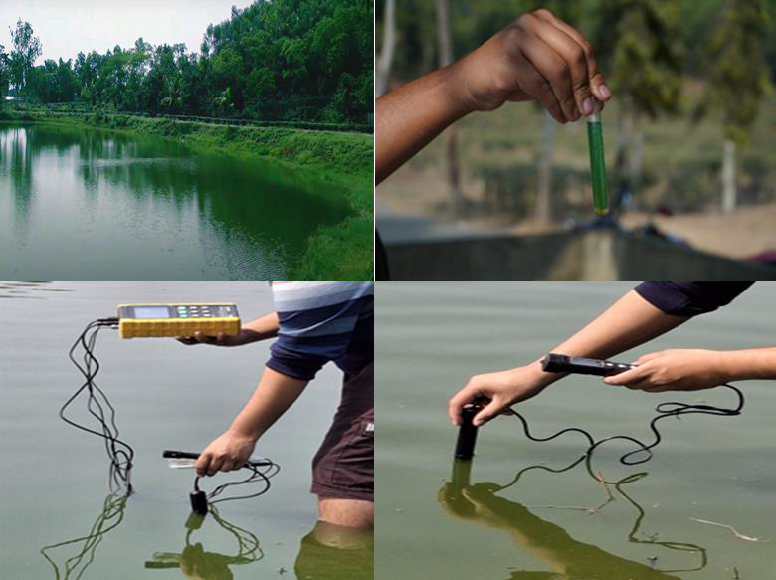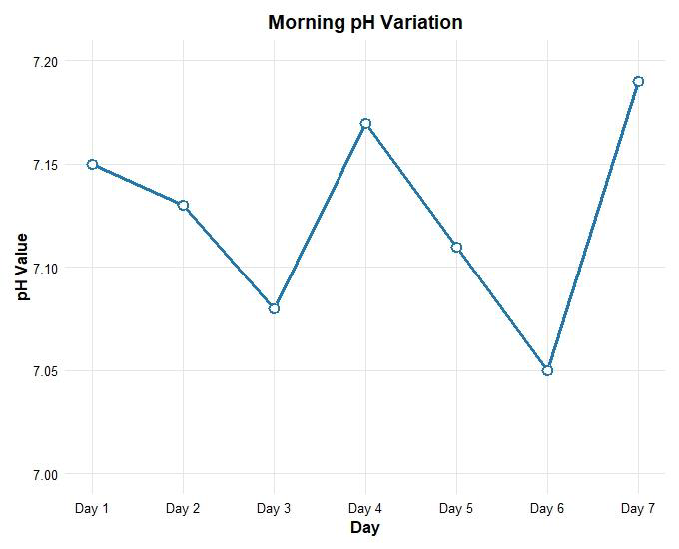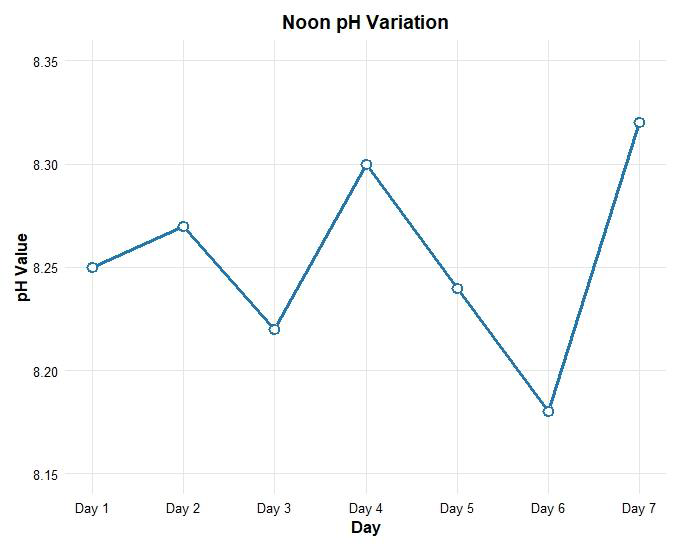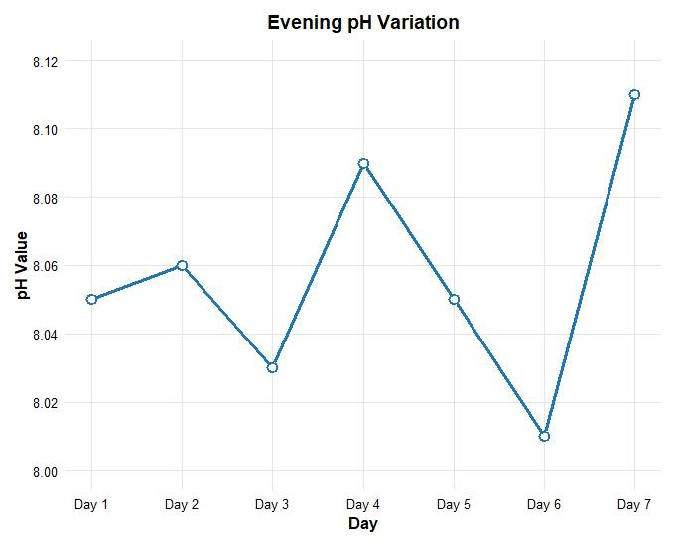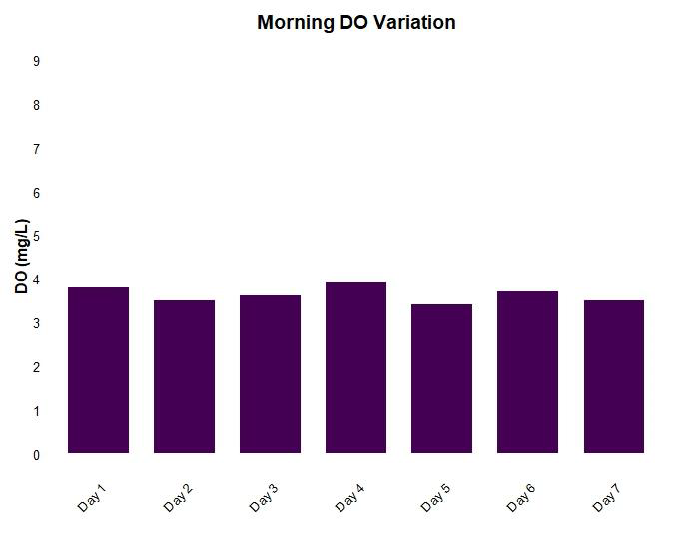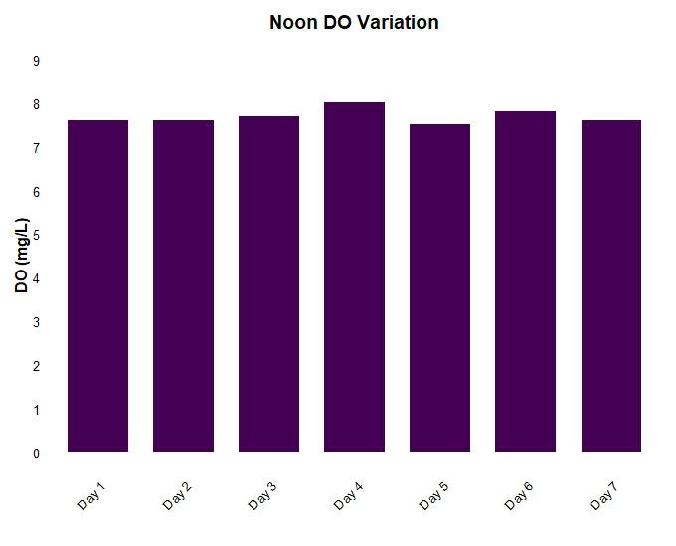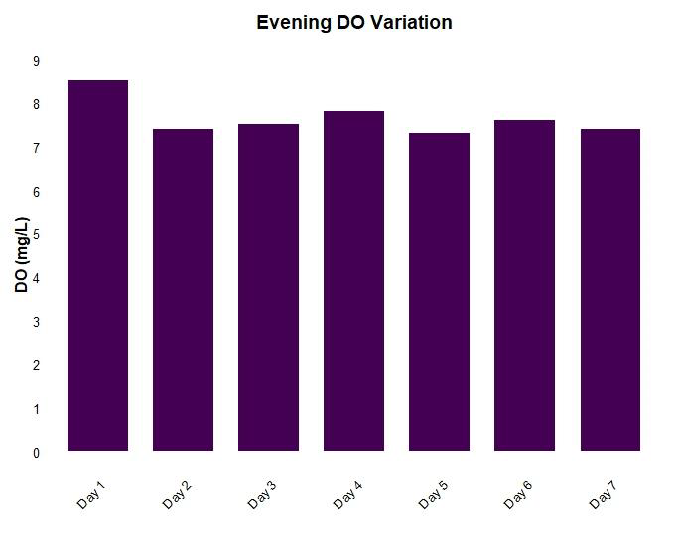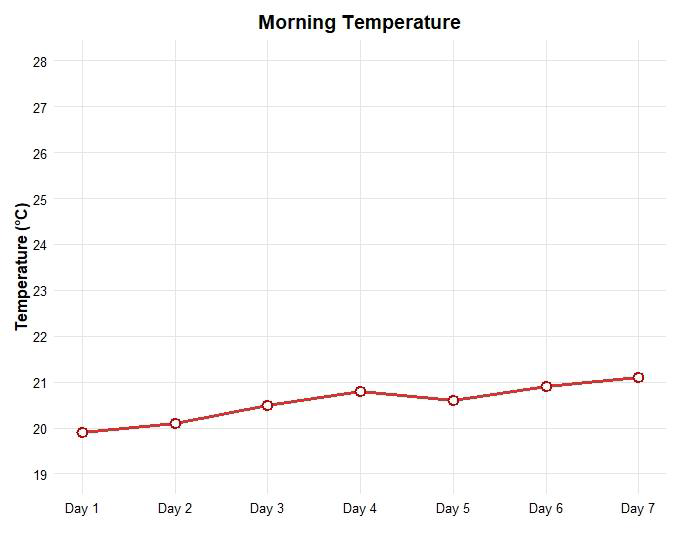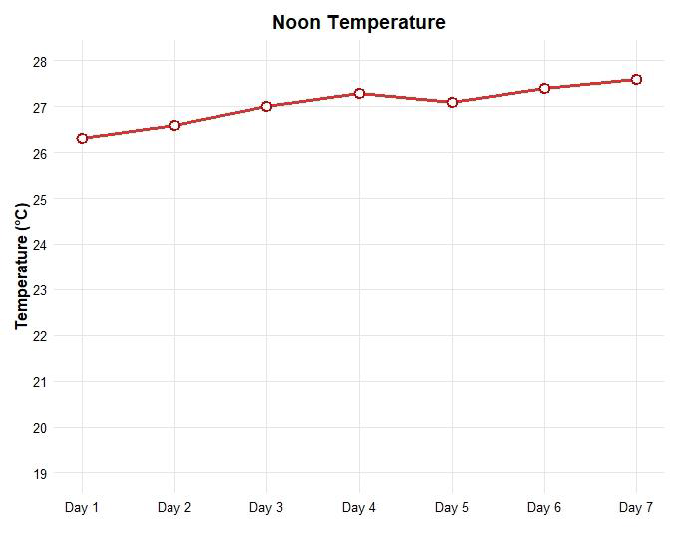Internship — Water Quality & Tilapia Production
Assessment of Water Quality Parameters and Their Impact on Tilapia Production in Aquaculture Ponds
Date: February 13–20, 2024
Internship at Bluetech Life Science & Agro Ltd, Sylhet.
Overview
- Conducted a week-long internship at Bluetech Life Science & Agro Ltd. focusing on aquaculture water quality monitoring.
- Designed a sampling framework covering Pond 1 (time-series monitoring) and Ponds 2–5 (ammonia cross-comparison).
- Measured parameters including dissolved oxygen (DO), pH, temperature, and ammonia (NH₃) using aquaculture kits.
- Carried out sampling three times daily (morning, noon, evening) to capture diurnal fluctuations and critical stress periods.
- Compiled all field data into structured tables and time-series graphs for interpretation against tilapia aquaculture standards.
Key Results
- Morning DO levels in Pond 1 consistently fell to 3.4–3.9 mg/L, below safe thresholds for tilapia.
- pH showed strong diurnal shifts, from ~7.05 in the morning to ~8.32 at midday, indicating photosynthesis-driven alkalinity changes.
- Temperature ranged from ~20 °C in the morning to ~27.6 °C at noon, reflecting daily thermal variation in shallow ponds.
- Ammonia (NH₃) spiked up to 2 mg/L in Pond 1 (toxic), while other ponds stayed within ~0.25–1 mg/L.
- Final interpretation emphasized urgent need for nighttime aeration, controlled feeding, and buffering measures to maintain safe aquaculture conditions.
